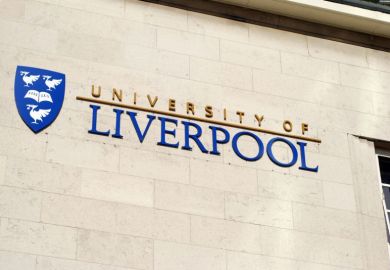International experts on the responsible use of research metrics have warned the University of Liverpool against making redundancies based on research grant income and citation impact scores.
The authors of the Leiden Manifesto and David Moher, lead author of the Hong Kong Principles, both of which encourage the research community to use metrics more responsibly, have written letters condemning Liverpool’s criteria for cutting 47 research jobs from its Faculty of Health and Life Sciences.
The University and College Union has said that the university is planning to assess individual research grant income and citation impact scores, with the 47 academics deemed the worst performing in line for redundancy by May.
In a letter to Dame Janet Beer, Liverpool’s vice-chancellor, Professor Moher, an expert in scientific publishing at the University of Ottawa, calls on the university to reverse its decision to make staff redundant “via the inappropriate use of research metrics”.
Assessing academics in this way fails to recognise their collegial or “goodwill” contributions, such as teamwork or mentoring early career researchers, which are so important to academia, he says.
The application of quantitative metrics in a mass redundancy exercise is “a major issue of concern”, Professor Moher continues. “The timing of this, at such a crucial time for debates in the academe, threatens to set back the responsible use of metrics in the sector,” he says.
“Inappropriate use of research metrics incentivises poor science, corner-cutting, and data massaging; while creating insecure, untrustworthy, and low-morale research cultures.”
In a letter of solidarity to Liverpool’s UCU branch, which has condemned the cuts, the authors of the Leiden Manifesto condemn the university’s use of metrics, because they “can be biased in various ways” and add that the function of a university is much more than acquiring citations and funding.
Ismael Rafols, Ludo Waltman, Sarah de Rijcke, and Paul Wouters, all at the Centre for Science and Technology Studies at Leiden University, say that the “proposal seriously contravenes the principles of ethical and responsible use of research metrics” as stated in the Leiden Manifesto but also the San Francisco Declaration on Research Assessment (Dora), which Liverpool is signed up to.
Liverpool highlights both of these, and the Hong Kong Principles, on its website as useful resources on the responsible use of metrics.
“We regard the application of quantitative metrics in a mass redundancy as a major threat for recent initiatives on responsible research metrics,” the Leiden authors say. It would also make Liverpool the first university in Europe to do so.
David Whyte, vice-president of Liverpool’s UCU, welcomed the letters of support. Liverpool’s plan was “unprecedented” and undermined the principles of team science, he said.
“To have the support of the world’s foremost experts in responsible metrics is important. The university has been told unequivocally that the international research community finds this attempt to make respected researchers unemployed in the middle of the pandemic both unethical and unacceptable,” he said.
More than 200 members of staff at Liverpool have also signed an open letter criticising the redundancy metrics.
A spokeswoman for the university said that the measures that have been proposed “are subject to collective consultation and are confidential within that process, but I can confirm they are based on transparent and measurable outputs, benchmarked against our Russell Group comparators and the relevant academic discipline. The proposed measures have been considered carefully, in line with relevant codes of practice related to the responsible use of research metrics.”
Register to continue
Why register?
- Registration is free and only takes a moment
- Once registered, you can read 3 articles a month
- Sign up for our newsletter
Subscribe
Or subscribe for unlimited access to:
- Unlimited access to news, views, insights & reviews
- Digital editions
- Digital access to THE’s university and college rankings analysis
Already registered or a current subscriber?










